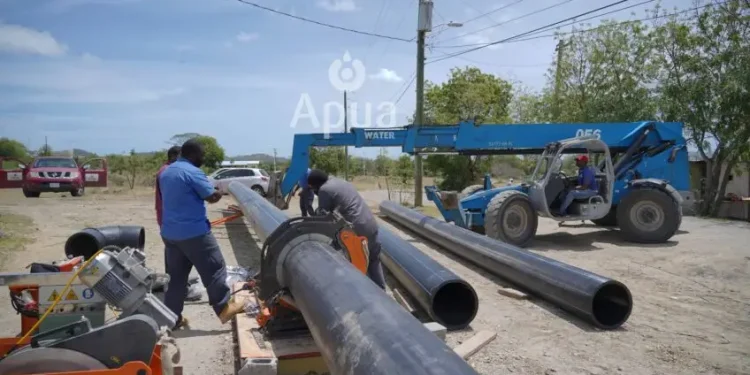The prime minister has set his eyes on bringing solutions to the chronic problems of inefficiencies that have been plaguing the management of the water distribution system in the country.
Prime Minister Gaston Browne used the Antigua Public Utilities Authority (APUA) as a case study as he discussed the inefficient public sector during last Saturday’s Browne and Browne show on Pointe FM radio.
Prime Minister Browne criticized the chronic inefficiencies in water management and service delivery. He cited cases of burst pipes leaking water for weeks in one of the world’s most water-scarce nations. Despite having significantly increased the country’s water production capacity from 3 million to over 10 million gallons per day since taking office, the system remains plagued by poor management and lack of accountability.
To remedy this, the Prime Minister has called for practical training placements in countries like Malta, which rely heavily on reverse osmosis water production and maintain efficient systems despite similar geographic challenges. APUA staff would be paid to temporarily work in such advanced facilities, gaining firsthand experience in effective operations and maintenance practices.
The government has already invested close to $200 million in water infrastructure and plans to increase daily production to 15 million gallons by the end of the year. But Prime Minister Browne was clear: without holding public sector managers accountable, even the most advanced infrastructure investments will fail to yield the desired results.
Acknowledging the limitations of the public sector in consistently delivering efficient water services, the administration has begun partnering with private firms. A recent example includes a collaboration with an American company operating a one-million-gallon-per-day plant at Ffry’s, with another two-million-gallon facility being installed at Barnacle Point.
Prime Minister Browne candidly admitted that his comments might provoke backlash from partisan actors within APUA. He noted a troubling trend where some public servants, motivated by political affiliations, may intentionally undermine government’s operations—what he referred to as the “weaponizing” of essential services like water in the lead-up to elections. While he welcomed open discussion and rebuttal, he emphasized that constructive criticism should be met with an effort to improve, rather than hostility.


